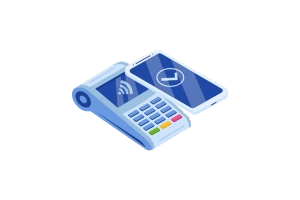In the realm of digital transactions, the advent of platforms like Zelle has revolutionized how individuals transfer money. Instantaneous, effortless, and user-friendly, Zelle epitomizes the convenience of modern banking. However, with the surge in popularity of such platforms, consumers often grapple with intricate issues surrounding financial security, particularly when it comes to unauthorized transactions or disputes. The question looms large: can you do a chargeback on Zelle?
To adequately address this inquiry, it is vital to comprehend the fundamental mechanisms of Zelle. Designed primarily for peer-to-peer transactions, Zelle allows users to send money directly from their bank accounts via a user’s email or mobile number. The immediacy of the service is both a boon and a bane; once a transaction is initiated, the funds are swiftly withdrawn and deposited into the recipient’s account—often within minutes. Thus, the dynamic nature of Zelle transactions complicates the notion of chargebacks, which are typically associated with credit card payments or other forms of electronic transactions.
A chargeback is a process whereby a consumer disputes a transaction, prompting the bank or credit card provider to reverse the payment. Generally, this procedure is part of consumer protection mechanisms designed to shield buyers from fraudulent activities. However, the chargeback process hinges on strict regulations and timeframes, while Zelle, in contrast, lacks the same infrastructure for disputing transactions. This stark disparity raises an important consideration: can you seek recourse for a mistaken or unauthorized Zelle payment, and if not, what options are available?
To navigate this complex landscape, one must first recognize the nature of the transactions facilitated through Zelle. Unlike credit cards, where funds are held in an intermediary account until the transaction is finalized, Zelle transfers are direct. This immediacy means that once the sender hits “send,” the transaction is completed almost instantaneously. The lack of a holding period not only expedites the flow of money but also eliminates the opportunity for traditional chargeback processes. In essence, Zelle transactions are final, fundamentally complicating the prospect of reversal.
Moreover, Zelle explicitly states that it does not provide a buyer protection program. Therefore, if you inadvertently send money to an incorrect recipient or fall victim to a scam, your options for recourse are markedly limited. Unlike transactions made via credit cards—which have consumer protections, including chargebacks—Zelle transactions are not safeguarded by any robust mechanism. This stark reality can be particularly disheartening for users who assume that their funds are protected by some form of recourse.
In cases of fraud, potential victims are encouraged to act swiftly. If a user suspects that they have been duped, the first course of action should be to contact their bank or financial institution immediately. While Zelle itself may not offer chargeback services, some banks might initiate an investigation into the transaction. The outcomes of such inquiries can vary; however, some banks may opt to assist in recovering funds, although this is not guaranteed.
Another consideration lies in Zelle’s policy on unauthorized transactions. If a user has not authorized a payment, they can report this to their bank. Again, the possibility of a refund hinges significantly on the individual bank’s policies and their flexibility in addressing fraudulent activity. Banks are often keen to protect their customers and may pursue avenues for recovery, even in the absence of formal chargeback protocols.
Given this context, it is also imperative to note the keyword: prevention. Understanding the limitations of Zelle in relation to chargebacks underscores the importance of using the service wisely. Users should be diligent when sending funds, ensuring that they verify the recipient’s details and exercise caution with transactions involving strangers or unfamiliar parties.
As a proactive measure, consider employing safety protocols similar to those you might use with cash transactions. For instance, contemplate sending small amounts in an initial transaction as a test. If you’re engaging in a sale or service, ensure all terms are clearly established before finalizing the payment. Such vigilance can mitigate the risk of disputes and financial loss when using Zelle.
Another strategic consideration involves utilizing different payment methods for larger transactions or those involving significant sums of money. Credit cards often offer enhanced consumer protections, which can provide greater peace of mind when navigating larger purchases or exchanges.
In summation, while Zelle tantalizingly offers an instantaneous and contemporary solution for transferring money, the reality of financial disputes served by this platform reveals significant limitations, particularly concerning chargebacks. Zelle transactions are straightforward, but without the safety net of a buyer protection program or chargeback opportunity, users must exercise stringent due diligence. Ultimately, understanding these nuances empowers users to navigate the complex world of digital banking with greater confidence and financial acuity.
